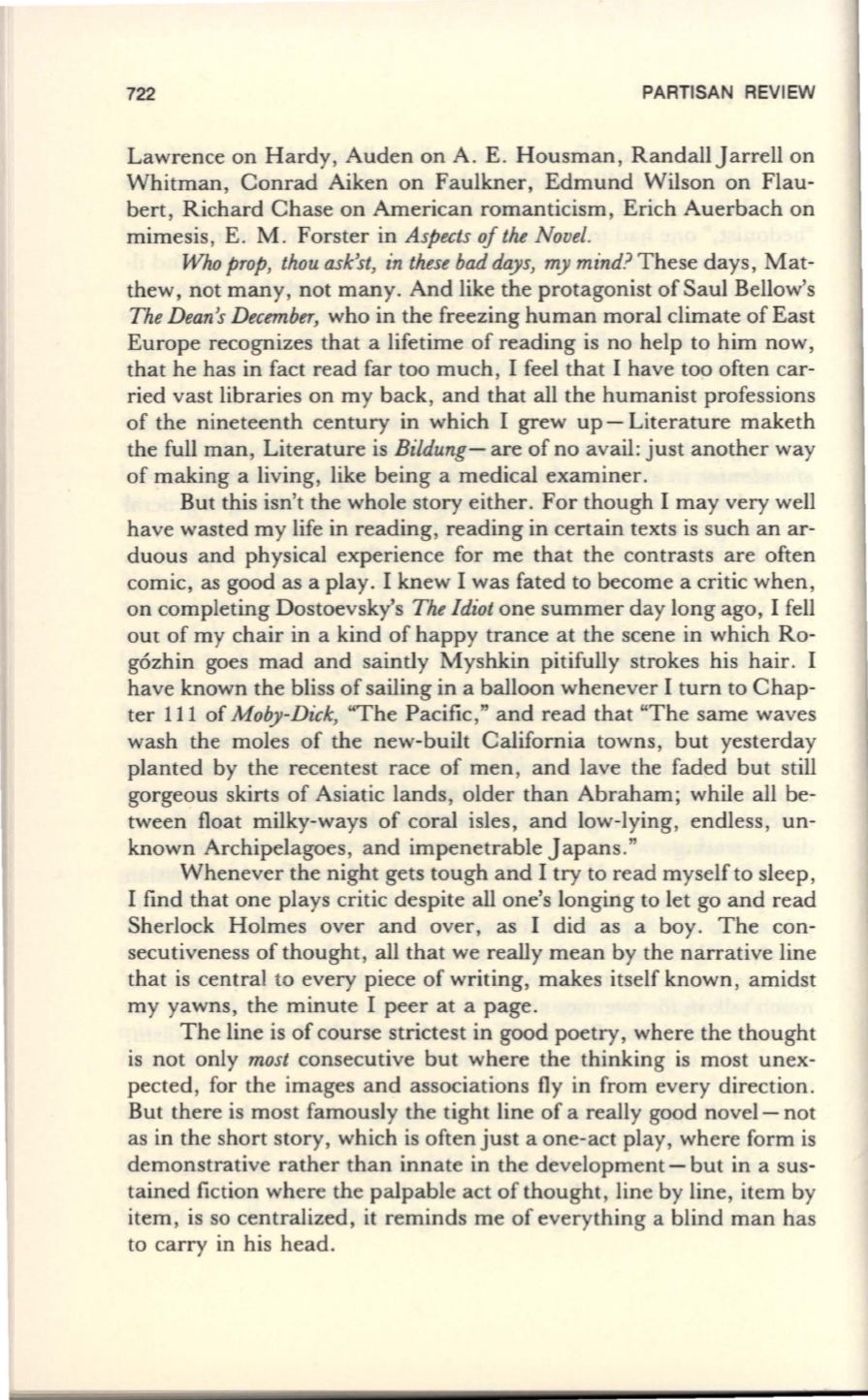
722
PARTISAN REVIEW
Lawrence on Hardy, Auden on A. E. Housman, Randall Jarrell on
Whitman, Conrad Aiken on Faulkner, Edmund Wilson on Flau–
bert, Richard Chase on American romanticism, Erich Auerbach on
mimesis, E. M. Forster in
Aspects of the Novel.
Who prop, thou ask'st, in these bad days, my mind?
These days, Mat–
thew, not many, not many. And like the protagonist of Saul Bellow's
The Dean's December,
who in the freezing human moral climate of East
Europe recognizes that a lifetime of reading is no help to him now,
that he has in fact read far too much, I feel that I have too often car–
ried vast libraries on my back, and that all the humanist professions
of the nineteenth century in which I grew up- Literature maketh
the full man, Literature is
Bildung-
are of no avail : just another way
of making a living, like being a medical examiner.
But this isn't the whole story either. For though I may very well
have wasted my life in reading, reading in certain texts is such an ar–
duous and physical experience for me that the contrasts are often
comic, as good as a play. I knew I was fated to become a critic when,
on completing Dostoevsky's
The Idiot
one summer day long ago, I fell
out of my chair in a kind of happy trance at the scene in which Ro–
g6zhin goes mad and saintly M yshkin pitifully strokes his hair. I
have known the bliss of sailing in a balloon whenever I turn to Chap–
ter 111 of
Moby-Dick,
"The Pacific," and read that "The same waves
wash the moles of the new-built California towns, but yesterday
planted by the recentest race of men, and lave the faded but still
gorgeous skirts of Asiatic lands, older than Abraham; while all be–
tween float milky-ways of coral isles, and low-lying, endless, un–
known Archipelagoes, and impenetrable Japans."
Whenever the night gets tough and I try to read myself to sleep,
I find that one plays critic despite all one's longing to let go and read
Sherlock Holmes over and over, as I did as a boy. The con–
secutiveness of thought, all that we really mean by the narrative line
that is central to every piece of writing, makes itself known, amidst
my yawns, the minute I peer at a page.
The line is of course strictest in good poetry, where the thought
is not only
most
consecutive but where the thinking is most unex–
pected, for the images and associations fly in from every direction.
But there is most famously the tight line of a really good novel- not
as in the short story, which is often just a one-act play, where form is
demonstrative rather than innate in the development- but in a sus–
tained fiction where the palpable act of thought, line by line, item by
item, is so centralized, it reminds me of everything a blind man has
to carry in his head .


